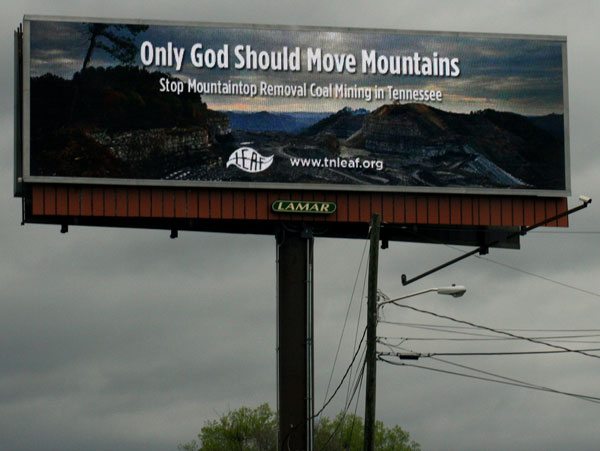
August 21, 2017; Washington Post and Columbus Dispatch
The current presidential administration seems to be opposing itself on coal.
The National Academies of Sciences, Engineering, and Medicine have been informed by the Department of the Interior that they must stop a study that was to look into the effects on the health of those living in proximity to active and inactive coal surface mining sites. The study would “evaluate the potential for short-term and long-term human health effects, which will include consideration of potential exposure pathways and relevant environmental contaminants and other stressors.”
At the same time, the administration has denied a request by the coal industry to utilize an emergency order within the U.S. Federal Power Act, which allows for intervention to protect the supply of electricity in a crisis, to halt the closure of coal-fired power plants.
In a statement, the National Academies report the receipt of a letter on August 18th from Interior’s Office of Surface Mining Reclamation and Enforcement demanding the 11-member committee to stop all work while projects costing over $100,000 are reviewed. The stated reason was “largely as a result of the Department’s changing budget situation.”
The current administration has proposed a $1.6 billion cut to Interior’s budget for 2018, which includes a loss of approximately 4,000 jobs. Interior Secretary Ryan Zinke supported the cuts in a Senate hearing, saying, “This is what a balanced budget looks like.”
The committee has focused its work in Central Appalachia, where surface mining includes mountaintop removal that results in damage to the topography that can never be repaired, including buried creeks and streams in which peaks have been blasted off and valley streams have been buried in rubble. Scientists have said the practice is so destructive that the government should stop issuing permits for it.
“It’s infuriating that Trump would halt this study…that people in Appalachia have been demanding for years,” said Bill Price, a representative for the Sierra Club’s Beyond Coal Campaign. “Everyone knows there are major health risks living near mountaintop removal coal mining sites, but communities living with daily health threats were counting on finally getting the full story from the professionals at the National Academies of Science.”
Sign up for our free newsletters
Subscribe to NPQ's newsletters to have our top stories delivered directly to your inbox.
By signing up, you agree to our privacy policy and terms of use, and to receive messages from NPQ and our partners.
After a study in 2010, Margaret Palmer, the lead author, who was a professor at the University of Maryland Center for Environmental Sciences at the time, said, “The science is so overwhelming that the only conclusion that one can reach is that mountaintop mining needs to be stopped.”
While scientists have said the mining should be halted, the president, a self-described friend of the coal industry, issued an executive order that lifted a ban on leases for coal excavation on federal land. “I made them this promise,” Trump said, “we will put our miners back to work.” Market forces have countered this, with natural gas taking over the production of power. Six coal-fired power plants have closed since January, and up to 40 more will close by 2020.
The National Mining Association used this information to their advantage in their agreement with shutting down the study. They cited the U.S. Energy Information Administration, which stated that since mountaintop mining is less than one percent of coal production, a study of health risks “may be unnecessary.” That acknowledgement runs counter to the coal industry’s request for emergency protection of coal-fired power plants. After several meetings this summer with the president, it is likely that they thought the emergency protection was a done deal.
Trump committed to the measure in private conversations with executives from Ohio-based Murray Energy Corp. and FirstEnergy Solutions Corp. after public events in July and early August, according to letters to the White House from Murray Energy and its chief executive, Robert Murray. In the letters, obtained by the Associated Press, Murray said failing to act would cause thousands of coal miners to be laid off and put the pensions of thousands more in jeopardy. One of Murray’s letters said Trump agreed and told Energy Secretary Rick Perry, “I want this done” in Murray’s presence.
Murray stated that FirstEnergy Solutions is faced with bankruptcy, which would domino Murray Energy into the same situation. Murray, personally and through the company, has contributed hundreds of thousands of dollars to the Trump campaign and the inauguration. He was a guest at the signing of the repeal of the Obama order forbidding mining waste dumping in waterways.
Energy Department spokesperson Shaylyn Hynes said that while the agency understands the difficulties in the coal industry, “We look at the facts of each issue and consider the authorities we have to address them, but with respect to this particular case at this particular time, the White House and the Department of Energy are in agreement that the evidence does not warrant the use of this emergency authority.”
The emergency authority was used after Hurricane Katrina in 2005. It was not used during the Obama administration, but the Trump administration has used it twice to prevent electric shortages as power plants ran past their planned retirement dates.
It appears that the administration does not have a consistent policy when it comes to coal. The National Academies of Sciences, Engineering and Medicine might have been issuing a report on a dying industry, but the effects on the environment and the human beings will linger. The nonprofit scientific committee would be contributing to the welfare and knowledge base with a completed study.—Marian Conway












